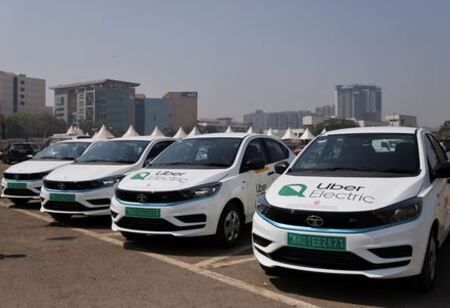
Government Backs EV Tariff Cuts for Trump Trade Deal


As New Delhi prioritizes concluding a trade agreement with the US, India intends to reduce import duties on electric vehicles, turning down appeals from regional automakers to postpone such reductions by four years.
The automakers are urging the government of Prime Minister Narendra Modi to postpone any EV tariff reductions until 2029 and then gradually lower them from as high as approximately 100 percent to 30 percent.
The sector is expected to be included in the first round of tariff reductions in a planned bilateral trade agreement, but New Delhi is serious about reducing EV levies, which have angered US President Donald Trump and his ally Tesla CEO Elon Musk.
The Society of Indian Automobile Manufacturers, which represents automakers in the third-largest auto industry in the world, and India's commerce ministry.
Though Trump has called India a "tariff king" and is getting ready to declare retaliatory tariffs on trading partners, New Delhi is attempting to improve relations with him by reducing taxes on EVs and other items.
Tesla, which has finalized outlets in Mumbai and New Delhi to start selling imported cars in the South Asian country this year, would win an instant discount.
According to Trump, it would be unjust if Tesla had to establish a facility in India when it is currently "impossible" for the company to sell there.
However, it would be a blow to indigenous companies like Mahindra & Mahindra and Tata Motors, who have pushed against duty cuts and spent millions of dollars in local EV manufacture, with more to follow.
Automakers worry that a deal with the US will set the stage for future trade negotiations with the UK and the EU, escalating competition in India's tiny but rapidly expanding EV market.
Only 2.5 percent of India's 4.3 million automobile sales in 2024 were from EVs, which are primarily sold by Tata Motors. The government hopes to raise this percentage to 30 percent by 2030.
Also Read: 5 Leadership Changes that Made Waves so Far in 2025
Automakers say their EV investment is linked to New Delhi's incentive program for local manufacturing, which runs until 2029, and that permitting cheaper imports before then would hurt their competitiveness. However, they are open to something like an immediate duty cut on gasoline models, followed by a phased reduction to 30 percent.